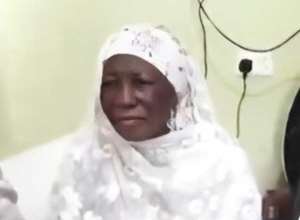
Residents of Madina UN in Accra were thrown into disbelief and panic when a woman presumed dead and already buried according to Islamic rites suddenly returned home—alive and well.
Fatima Kassim, the woman at the centre of the astonishing mix-up, had been declared dead during this year’s Hajj pilgrimage in Saudi Arabia. Her family, grieving the reported loss, held a solemn funeral in her honour after receiving an official death certificate issued by Ghana’s consulate in the Kingdom of Saudi Arabia.
But in a surreal turn of events, Fatima returned to her home on Wednesday, July 2, leaving her family and the entire neighbourhood in shock. Some residents reportedly ran in fear, convinced they were witnessing a ghost.
“I feel happy and sad, because we are still confused about the situation. This is like a wonder,” one of her relatives told Citi News, expressing a mix of joy and emotional turmoil at Fatima’s unexpected return.
The bizarre incident was the result of a case of mistaken identity, admitted Alhaji Amadu Sorogho, a member of the Hajj Taskforce. “We have mistaken identity. The most important thing is that the lady is alive and everything is over,” he said.
Providing further clarification, Alhaji Iddi Sumaila, Director of Administration for the Hajj Taskforce, explained that two Ghanaian women had been receiving medical treatment in a Saudi hospital—one travelling on a tourist visa and the other part of the official Hajj delegation. Without their passports on them, officials mistakenly assumed the wrong identity.
“There were two patients there, one had a tourist visa and the other went with us, but by then their passports were not with them. So we mistakenly gave the one with the tourist passport to this one. Usually, when it happens, it is the embassy that takes control, so they issued the certificate. So we knew that one was gone and one was on admission—mistakenly, we exchanged it,” Alhaji Sumaila stated.
Fatima’s miraculous return has since become the talk of the town, raising questions about procedural lapses in identifying pilgrims during medical emergencies. While her family is relieved, they—along with the wider public—remain bewildered by how such a fundamental error could have occurred.


